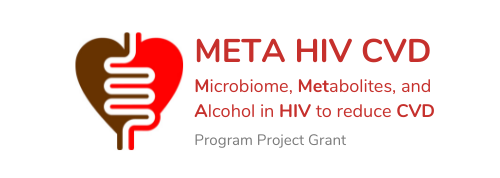Updates from 2nd Generation URBAN ARCH HIV/Alcohol P01s
This fall, the ARCHER team accomplished two notable milestones. We convened our first Program Advisory Committee (PAC) meeting, and our first Data and Safety Monitoring Board (DSMB) meeting.
On September 27, 2022, the ARCHER leadership team met with our Program Advisory Committee (PAC), to review the center’s aims, discuss trial measures and assessments, and gather feedback on novel ways that ARCHER Investigators can think about function and quality of life. In particular, our PAC provided advice on the selection of trial assessment measures as well as strategies to promote participant privacy and safety for these national trials occurring entirely online. Many thanks to our five PAC members, Dr. Gary Bennett, Dr. Geetanjali Chander, Dr. Christopher Kahler, Dr. NiCole Keith and Dr. Jessica Merlin, who bring deep and diverse scientific expertise to ARCHER. We look forward to convening our next PAC meeting once recruitment is underway.
The ARCHER team also worked with Dr. Matthew Freiberg and his META HIV CVD P01 team to convene the first meeting of our Data and Safety Monitoring Board (DSMB) which will be shared between ARCHER and META HIV CVD. This initial DSMB meeting was held on November 3, 2022. The study teams provided an overview for the DSMB members of the ARCHER and META HIV CVD trials, reviewed and finalized the DSMB Charter, and set organizational expectations for the DSMB. The ARCHER team would like to thank Dr. Jennifer Edelman for agreeing to chair our DSMB and Dr. Sarah Woolf-King and Dr. W. Evan Johnson for agreeing to serve as members on our DSMB.
Both ARCHER trials (Physical Activity Trial and Chronic Pain Trial) are still under review, pending approval by the Boston University Medical Campus Institutional Review Board (IRB). As the study team awaits IRB approval, we have been working to advance and refine our study procedures, workflows, and operations. We have worked closely with our collaborators at the Boston University Biostatistics and Epidemiology Data Analytics Center (BEDAC) to program the electronic data collection systems for the ARCHER trials in REDCap, and to develop the web-based tracking system that will be utilized by the study team to track study contacts with participants over time in order to facilitate longitudinal follow-up and retention. We have tested and refined our ecological momentary assessment (EMA) measures and data collection procedures with collaborators at MetricWire (a vendor that specializes in providing mobile applications for research data collection), and begun discussing study workflows with Tasso (our vendor supplying self-administered blood draw devices that will be used by trial participants) and the Biological and Psychological Analytics Laboratory at the University of Texas Health Science Center at San Antonio for both trials’ 6-month phosphotidylethanol (PEth) testing. We expect to begin trial recruitment in early 2023.
We invite any interested investigators who wish to use existing Boston ARCH data for secondary analysis to contact Dr. Stein, Kara Magane or Nicolle Rueras for additional information.
The META HIV CVD team has been busy over the past few months. Project 2 specimens were shipped from the repository to the Integrated Metagenomic and Metabolomic Core Lab at the University of Louisville. A preliminary subset of samples completed metabolomic analysis and an abstract describing those data was submitted to the Research Society on Alcoholism annual meeting.
Project 1 held its initial Data Safety and Monitoring Board meeting in conjunction with ARCHER and obtained IRB approval at its new project site at Vanderbilt University Medical Center. The Project 1 trial will kick off enrollment in February 2023. Wish us luck!
The Admin, Education, and Analytic Core applied to host the second annual Alcohol and HIV satellite meeting at the RSA 2023 annual meeting in Bellevue, WA. The satellite meeting will incorporate presentations from other NIAAA-funded groups including URBAN ARCH, ARCHER, VACS-HARP, and SHARC in addition to preliminary analysis from the META P01.

